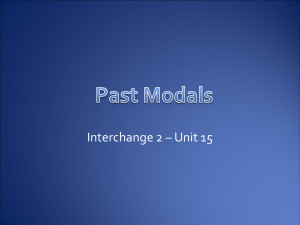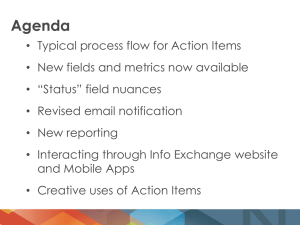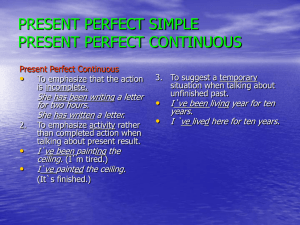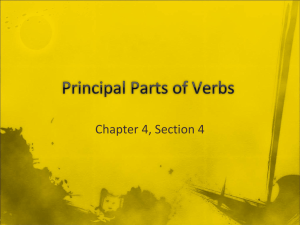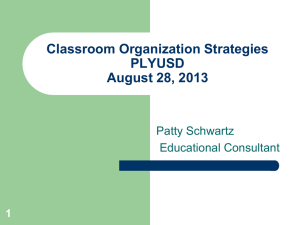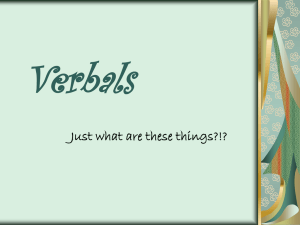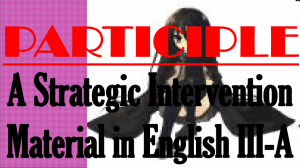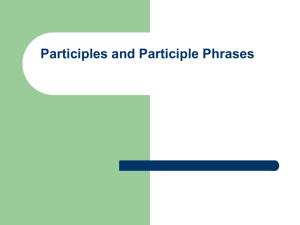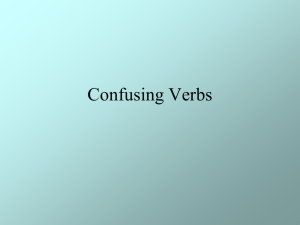Present_Perfect_Simple_Continuous
advertisement
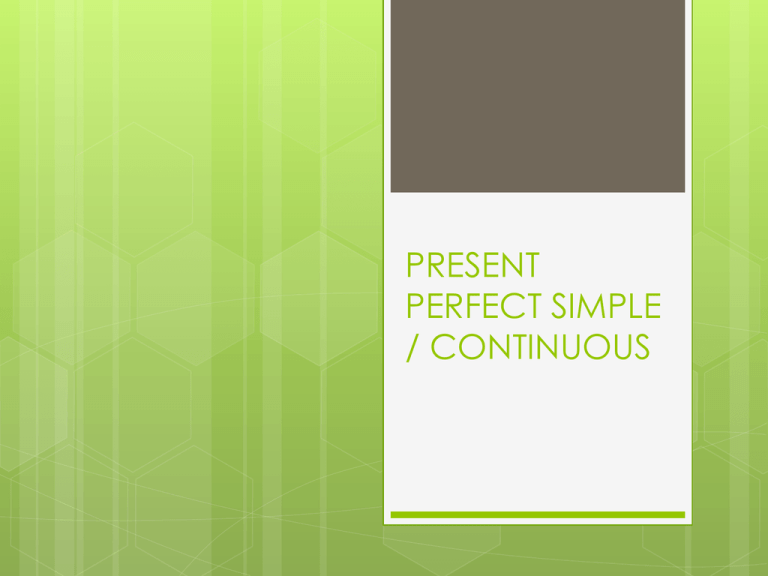
PRESENT PERFECT SIMPLE / CONTINUOUS Present perfect simple has/have I've finished has/ + past participle have not + past participle She hasn’t finished has/ have + subject + past participle? Have you finished? We use the Present Perfect Simple: with since or for, about a period of time which is still continuing: l’ve lived there for four years . (= and I still live there) with questions asking how long: How long have you lived here:? (= I know you still live here) * Sometimes we can use also use the Present Perfect Continuous We use the Present Perfect Simple: for unfinished actions and events, often with still or yet: I still haven't finished it. I haven't finished it yet . Still and yet are always used with a negative in the present perfect. (Still goes before the verb and yet goes after it.) We use the Present Perfect Simple: for events repeated over a period of time until the present (they may continue): You've played the saxophone every night. (until now, and you will probably continue to play it every night) for events which happened in the past at a time which is unknown and I or irrelevant: I've started my essay. (= we don't know when) I've lost my new camera. (= it's not important when or where) We use the Present Perfect Simple: for events that happened in the recent past (often with just): Flight 206 has landed. (= in the last few minutes) She's just gone to the cinema. (= and she’s there now) when the time stated is not finished: I've spent this morning writing an essay. (it’s still morning) The builders have started working on the kitchen this week. (it's still this week) We use the Present Perfect Simple: when we talk about a period of time up to the present: I've been to Los Angeles but not to New York (= in my life so far – I may go to New York in the future) when we talk about how many times something has happened: This is the first time anyone has complainedl. We use the Present Perfect Simple: with adverbs like already, before, ever and never: Nobody's ever complained before. (= until now) I've never tried Japanese food . (= but I might one day) I've already rung the restaurant. I've met her before somewhere. never, ever and already go between the auxiliary and the main verb. Before goes after the verb. after a superlative: It's the best cup of coffee I've had here. We use the Past Simple: with for, about a period of time which is finished: with questions asking when: I lived there for four years. (= but I don’t live there now) When did Jo move here? (= the move is in the past) for completed actions and events in the past, often with ago: I finished it an hour ago. We use the Past Simple: for events repeated over a period of time in the past (they are now finished): for events that happened at a particular time in the past: You played the saxophone every night. (= but you don't any more) Flight 206 landed at one o'clock or within a period of time in the past: She was at the cinema between midday and two o'clock (= but she's not there now) We use the Past Simple: when the time stated is finished: I spent this morning writing an essay. (= it's now afternoon so 'this morning' is in the past) I started my essay last week (= 'last week' is definitely in the past) I lost my new camera in London. (= the place fixes it at a time in the past) when we talk about past events which are not connected to the present: I went to Los Angeles but not to New York (= on a particular trip which is in the past) Present Perfect Continuous: has/ I've been working hard. has/ She have been + past participle have not been + past participle hasn't been working hard. Has/have ...+ been+ past participle? Have you been working hard? We use the Present Perfect Continuous: to talk about how long something has been happening: I've been driving since five o’clock this morning. The children have been playing happily all morning. We've been worrying about her all week. How long have you been watching TV? to focus on the activity or event itself (whether it is complete or not is unimportant): He's been reading the newspapers while he was waiting for her. (= we’re interested in how he passed the time not if he read every page) I 've been mending the car. (= that’s why I'm dirty) REMEMBER: We never use the present tense to talk about how long we have been doing something: I 've been learning the piano for a long time. (not I learn the piano for a long time.) State verbs are not usually used in the present perfect continuous I've known her since I was four years old . (not I’ve been knowing her... )


